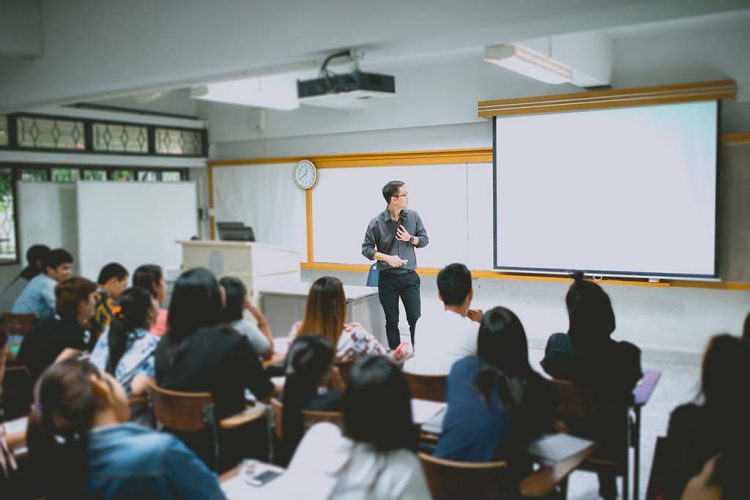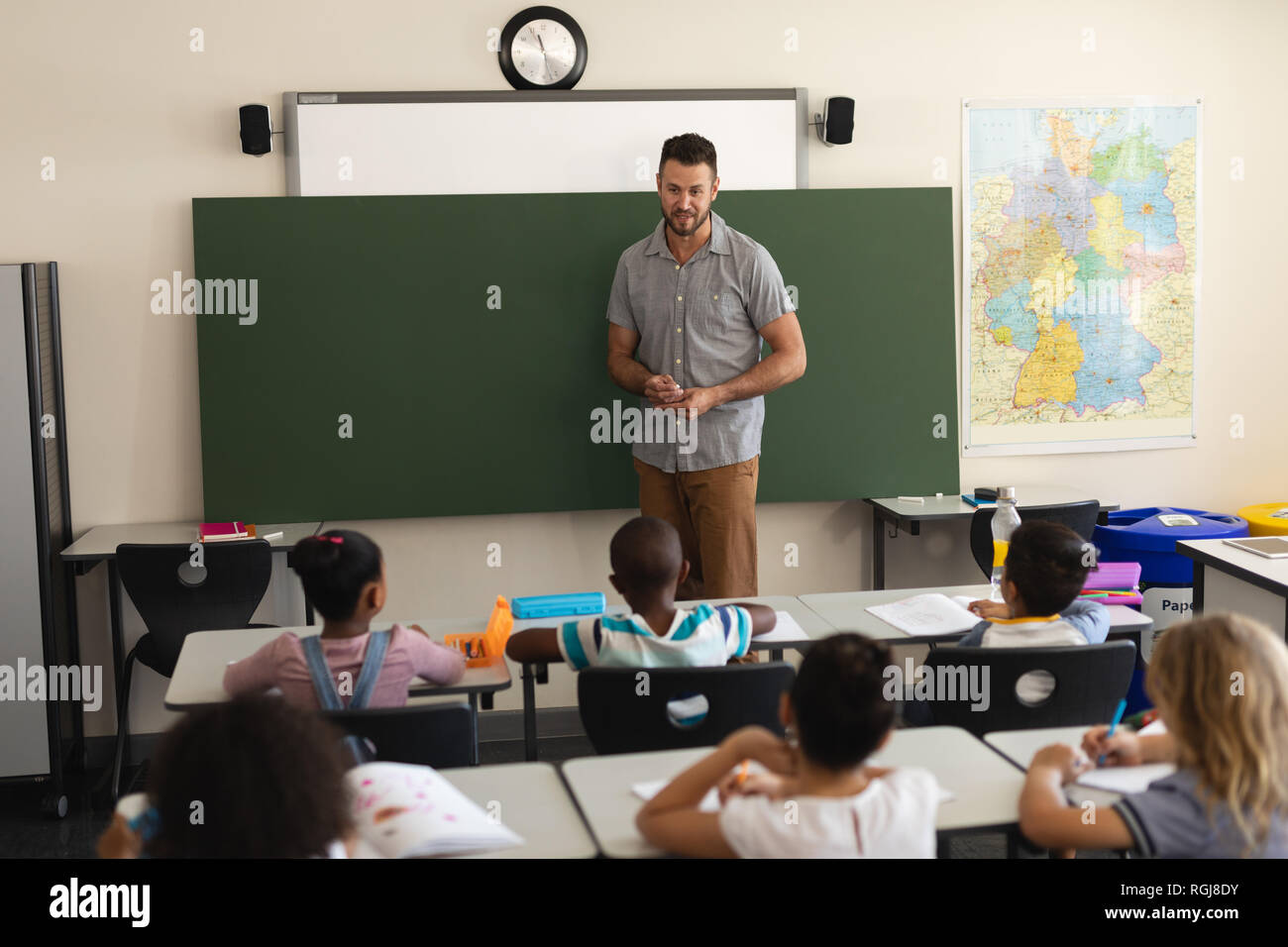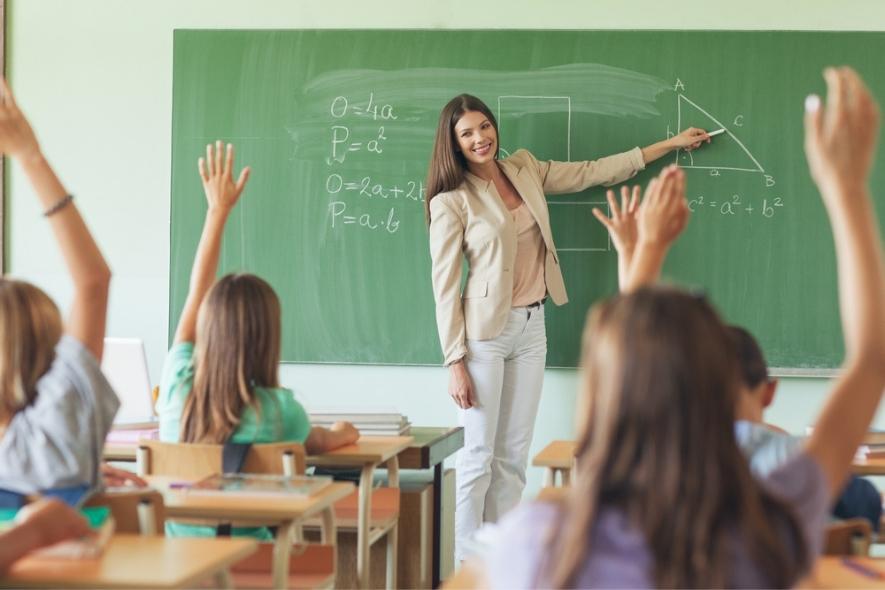Achieve Academic Success with Primary Science Tuition Singapore
Achieve Academic Success with Primary Science Tuition Singapore
Blog Article
Discovering the Various Mentor Approaches in Primary Science Education Today
The landscape of primary scientific research education and learning is advancing, with various teaching strategies getting prestige in modern class. Inquiry-based knowing, hands-on experiments, and the integration of innovation are redefining how instructors engage young minds. Furthermore, joint methods and separated instruction are being employed to accommodate the diverse demands of trainees, enhancing both engagement and understanding. As we take a look at these methods, concerns develop concerning their performance and the implications for future instructional methods. What might these shifts in technique mean for the future generation of learners?
Inquiry-Based Understanding
Inquiry-Based Learning (IBL) is an instructional strategy that motivates trainees to check out clinical concepts through doubting, investigation, and hands-on trial and error. This approach emphasizes the role of trainees as energetic individuals in their discovering, promoting critical thinking and analytical skills. By engaging with real-world concerns, pupils come to be interested and motivated, which improves their understanding of scientific concepts.
In IBL, teachers act as facilitators, guiding pupils as they navigate their inquiries as opposed to providing information directly. This student-centered approach enables differentiation, accommodating various discovering speeds and designs. Pupils develop skills in developing theories, making experiments, and analyzing information, which are critical for scientific literacy.
Furthermore, IBL fosters cooperation among pupils, encouraging them to share ideas and searchings for. This collective questions promotes social abilities and a feeling of community within the classroom. The procedure of query urges resilience, as students find out to accept failure as a tipping rock toward understanding.
Hands-On Experiments
Hands-on experiments are a vital part of reliable scientific research education and learning, matching the principles of inquiry-based understanding. These experiments enable trainees to engage straight with clinical concepts, cultivating a much deeper understanding with experiential knowing. By manipulating materials and observing outcomes, young learners can realize abstract theories in concrete ways.
Such activities advertise vital reasoning and problem-solving skills, as students assume results, conduct experiments, and assess results. This process motivates them to ask concerns, refine their understanding, and establish a clinical mindset. Hands-on experiments can be customized to diverse learning styles, making certain that all students have the possibility to engage meaningfully with the content.
Additionally, hands-on experiments typically urge partnership among peers, advertising synergy and communication skills. Operating in groups allows pupils to share concepts, talk about findings, and learn from one an additional, which improves their overall instructional experience.
Integrating hands-on experiments right into the key scientific research curriculum not only enhances the learning atmosphere but likewise cultivates a lifelong interest in scientific research. By proactively joining their education, pupils are more probable to develop an interest for scientific query that prolongs beyond the classroom.

Technology Assimilation
Incorporating innovation right into key science education has actually come to be significantly necessary in cultivating trainee involvement and enhancing discovering outcomes. The usage of digital tools, such as interactive simulations, virtual laboratories, and instructional software, provides pupils with possibilities to check out scientific principles in ingenious means. These resources assist in a deeper understanding of complex subjects by allowing learners to envision and manipulate variables that would certainly be not practical in a conventional class setup.
Furthermore, technology combination motivates customized discovering experiences. Trainees can advance at their very own pace, revisiting difficult concepts with multimedia resources, which accommodate different discovering styles. This adaptability not only sustains specific growth however additionally cultivates a sense of autonomy in learners.
Furthermore, innovation works as a bridge to real-world science, attaching pupils with present study and specialist contributions. Accessibility to clinical journals and on-line databases widens students' viewpoints on clinical query and cultivates crucial believing abilities.
Collaborative Understanding
Collaborative discovering plays a crucial role in key science education by fostering teamwork and communication abilities amongst students. This approach encourages students to interact, share expertise, and take part in analytical, which boosts their understanding of clinical principles. By joining team activities, pupils learn to articulate their concepts, pay attention to varied perspectives, and negotiate remedies, every one of which are necessary skills in both real-world and scholastic contexts.

Research suggests that collaborative discovering can result in raised inspiration and engagement in scientific research subjects, as students discover enjoyment in common experiences (primary science tuition Singapore). Additionally, this strategy prepares trainees for future collaborative undertakings, equipping them with the skills required for reliable synergy in college and specialist environments. Inevitably, welcoming collaborative discovering in key scientific research education can significantly enrich the knowing experience and advertise a much deeper understanding of clinical inquiry
Differentiated Guideline

Differentiated guideline can manifest in various means, such as differing the web content, procedures, or products of understanding. As an example, educators might utilize tiered assignments that supply differing degrees of intricacy, permitting students to work at their particular preparedness levels. In addition, flexible organizing strategies can assist in collaboration among students with various capacities, promoting peer understanding.
Evaluation plays a vital duty in this method, as it educates guideline and aids educators comprehend each pupil's distinct demands. Formative evaluations, such as observations and tests, can guide educators in adjusting their techniques to enhance finding out results. primary science tuition Singapore. Ultimately, by applying set apart guideline in primary scientific research education, educators can cultivate an extra efficient and equitable learning atmosphere, equipping a knockout post all students to reach their full capacity in recognizing scientific phenomena
Verdict
In recap, the varied mentor methods in primary science education, including inquiry-based knowing, hands-on experiments, innovation integration, collaborative learning, and separated guideline, jointly add to a much more efficient learning setting. These techniques advertise vital reasoning, analytical skills, and a much deeper understanding of clinical principles. By applying these approaches, teachers can produce interesting and supportive class that attend to the diverse demands of pupils, inevitably cultivating a long-lasting interest in scientific research and enhancing scholastic achievement.
Inquiry-Based Discovering (IBL) is an instructional technique that encourages students to discover scientific principles via questioning, examination, and hands-on experimentation.Collaborative knowing plays a crucial duty in main science education and learning by cultivating teamwork and interaction skills amongst students.Study shows that joint learning can lead to increased inspiration and involvement in science topics, as pupils discover enjoyment in shared experiences.In fostering an inclusive knowing environment, distinguished guideline emerges as a vital method to fit the diverse demands and capacities of trainees in primary science education. Inevitably, by applying set apart direction in primary scientific research education, teachers can cultivate an extra fair and effective learning environment, encouraging all pupils to reach their full capacity in understanding clinical sensations.
Report this page